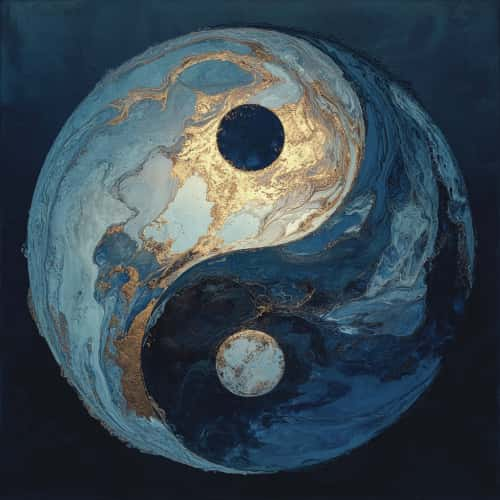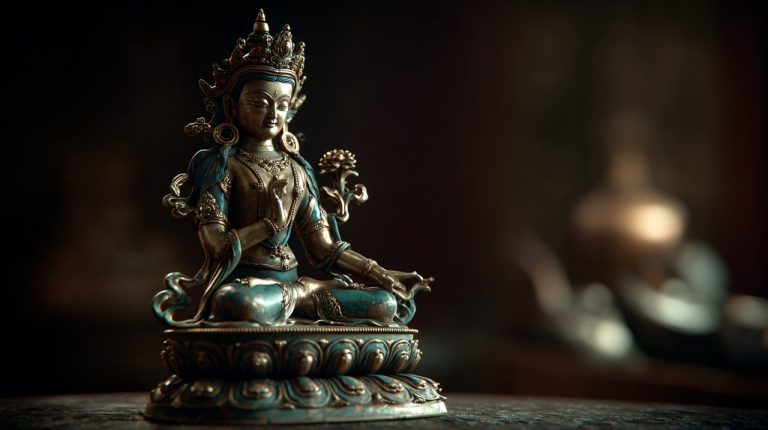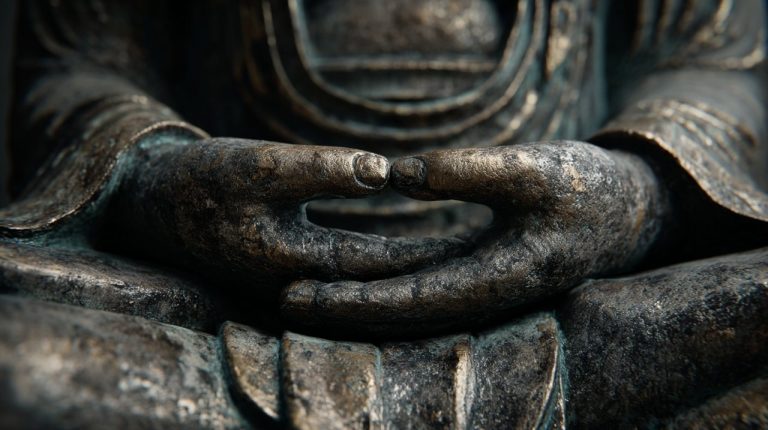Gifts for Buddhists: The Ultimate Guide to Ideas for Spiritual Practice, Travel & Home Altars
Finding the perfect gift can sometimes feel like a puzzle, right? We often start with the simple question: ‘What should I get them?’ But when we’re looking to honor someone on a spiritual path, especially a Buddhist, that question takes on a wonderfully deeper meaning.
It’s no longer just about picking out an object. Instead, it becomes an opportunity to find something that truly supports their journey, acting as a meaningful anchor or a positive prompt for their practice. This guide isn’t just about listing items; it’s about exploring how gifts can become powerful tools for personal growth.
Join me as we dive into understanding not just what to give, but more importantly, why these thoughtful choices hold such profound value in a practitioner’s life.
The Philosophy of Gifting: Thoughtful Tools for Spiritual Cultivation
For most of us, a gift is a lovely way to show affection. But for someone deeply engaged in Buddhist practice, a truly thoughtful item can transcend its material form. It transforms into an intentional tool or a powerful symbol that actively supports their spiritual journey.
Now, this isn’t about mysticism or magic. Instead, think of it as a fascinating application of environmental psychology and positive suggestion. It’s about how our surroundings can subtly influence our inner world.
Consider this: an object, simply by its consistent presence or practical use, becomes a visual reminder or a psychological anchor for spiritual goals. It helps us consciously design our internal and external environment to nurture mindfulness and growth. The real power, you see, lies in the intention behind the gift, turning it into a silent, steady companion on their path.
To illustrate, imagine the difference between a purely decorative trinket and a well-crafted meditation tool. While both might catch the eye, the latter actively encourages deeper engagement with practice, gently guiding the mind back to its purpose every time it’s used.
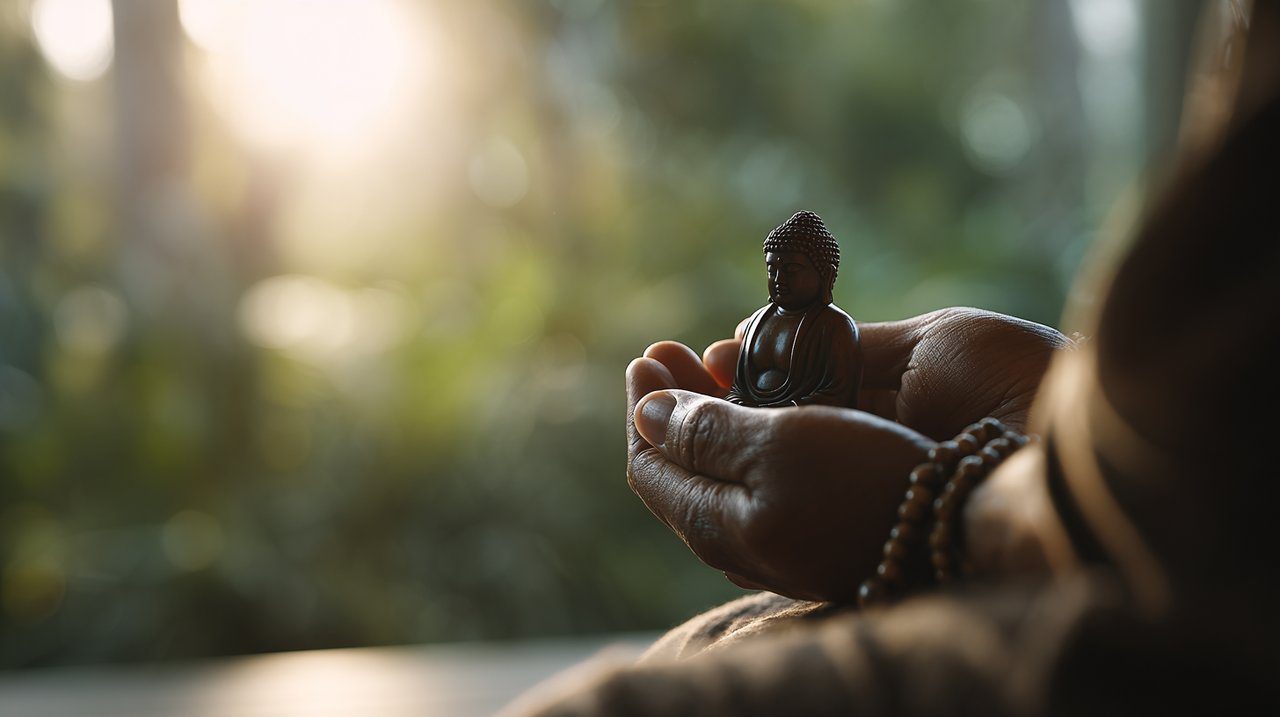
Gifts for Deepening Spiritual Practice
Supporting daily meditation, chanting, or study is often the most direct way to contribute to a Buddhist’s spiritual life. The right tools here can genuinely enhance focus and comfort, making consistent practice both more accessible and more enjoyable.
Consider high-quality meditation cushions, for instance. A well-designed cushion isn’t just a seat; it provides proper spinal alignment and comfort, allowing a practitioner to sit for longer periods without physical distraction. This seemingly simple item removes a common barrier, helping the mind settle more easily into deeper meditation.
Similarly, mala beads serve as a wonderful tactile anchor. They help count mantras and maintain concentration during chanting, giving the mind something tangible to focus on. These aren’t just accessories; they are practical aids that skillfully reduce physical distractions and provide a sensory focus.
By doing so, they allow the mind to delve much deeper into its work. They transform an ordinary act into a more profound engagement with the self and the dharma. It’s a subtle shift, but a powerful one.
A quick tip: not all practice items are created equal. Be mindful of purely decorative versions that might lack the functionality or traditional design crucial for effective use. Authenticity and practicality are always key.
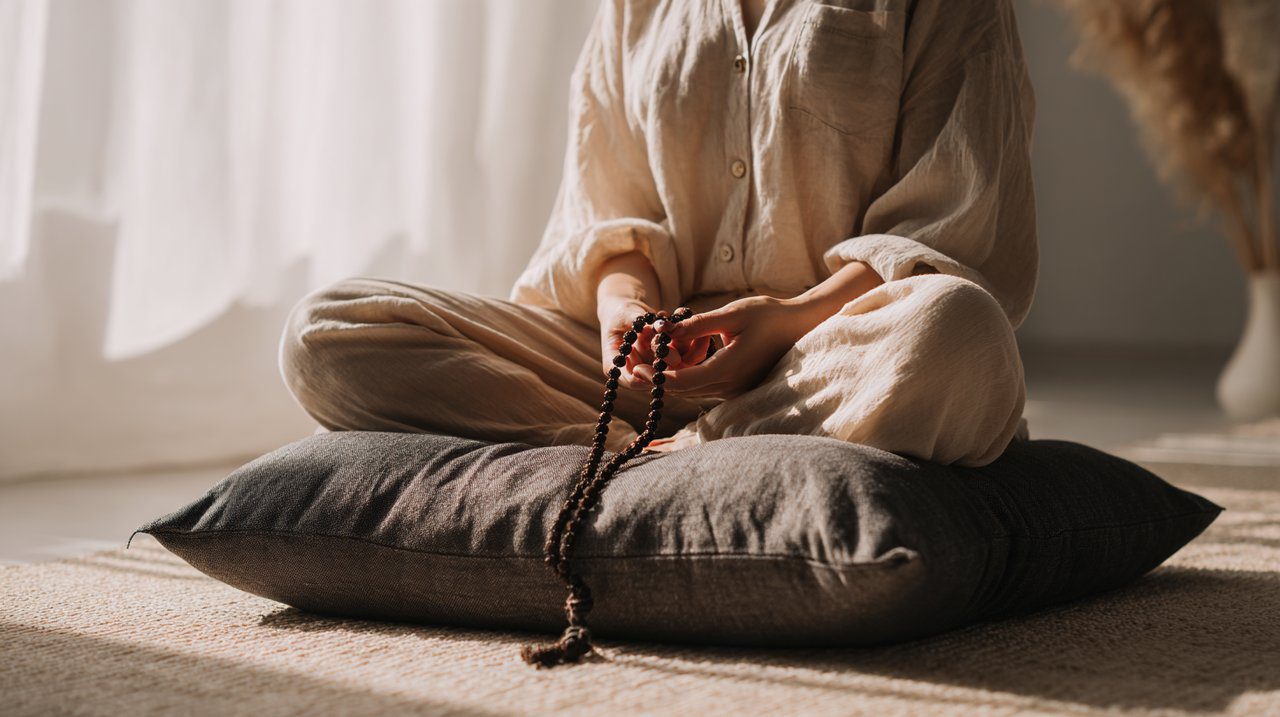
Essentials for the Traveling Practitioner
Life inevitably calls us away from home sometimes, but our spiritual practice doesn’t have to stay behind. For the Buddhist who travels frequently, gifts that ensure continuity and comfort in their practice are truly invaluable.
These items are wonderful because they help maintain a crucial sense of grounding amidst the disruptions and newness of unfamiliar environments.
A compact travel altar is a prime example of such a thoughtful gift. It might include a small Buddha statue, a miniature incense holder, or even tiny prayer flags. This portable sacred space allows the practitioner to establish a familiar ritual, no matter where their journey takes them.
Having a dedicated, even if temporary, altar helps to maintain a vital routine and a sense of grounding during travel, which can often be disorienting. It acts as a powerful psychological anchor, silently affirming: “No matter where I am, my practice continues.”
A simple travel kit could include just a mala and a small statue, while a more comprehensive one might feature a foldable mat or a small bag for carrying essentials. The key is to cater to their specific travel style and frequency.
Enhancing the Sacred Home Altar
For many Buddhists, the home altar is truly the heart of their spiritual life – a personal sanctuary for devotion and reflection. Gifts that thoughtfully enrich this space can make it even more vibrant and conducive to practice.
Consider quality incense burners. They are far more than just functional items; they elevate the entire sensory experience of the altar. The fragrance of incense, for example, can create an atmosphere of reverence and focus, subtly guiding the mind towards a state of tranquility.
Alongside this, various home altar supplies each hold deep symbolic significance, serving as constant visual teachings. These might include:
- water bowls for offerings (representing purity),
- candles (symbolizing light), or
- fresh flowers (reminding us of impermanence).
These sensory elements – fragrance, light, and visual beauty – work together synergistically to cultivate an atmosphere of reverence and deep focus. This, in turn, naturally deepens the practitioner’s connection to their spiritual path.
Additionally, symbolic decor, such as items featuring elephants, can profoundly enrich the altar’s overall energy. Elephants, revered for their wisdom, strength, and patience across many cultures, serve as powerful reminders of these essential virtues.
One common pitfall to avoid is cluttering the altar with too many items. The goal is always simplicity and clear intention over sheer quantity. Each item should serve a distinct purpose, whether practical or symbolic, to enhance the space rather than overwhelm it.
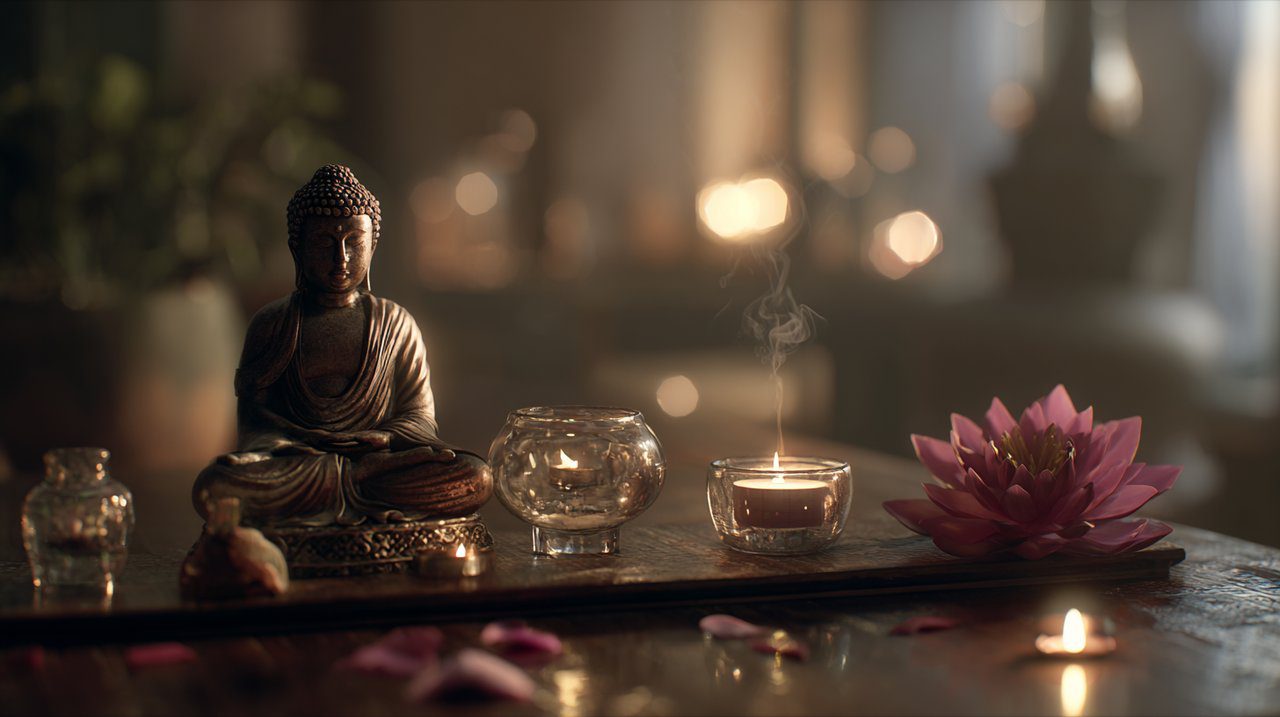
Symbolic Adornments & Protective Charms
Beyond the dedicated altar and meditation space, spiritual practice naturally extends into daily life. Gifts that are worn or carried can serve as constant, gentle reminders of one’s dharma, offering a sense of spiritual connection or even quiet protection throughout the day.
Think about meaningful items like small, handheld Tibetan prayer wheels, which can be spun as a form of active meditation to accumulate merit. Or perhaps beautiful Tibetan jewelry, which often carries deep spiritual significance.
These aren’t just fashion statements; they are constant, gentle reminders of one’s vows or intentions, subtly influencing one’s mindset and actions throughout the day. Similarly, protective jewelry—perhaps featuring sacred symbols or specific stones—can act as a personal talisman, providing a sense of comfort and inner strength.
The psychological impact of wearing symbols of peace, protection, or compassion is quite profound. They become personal anchors, offering a quiet resilience and a continuous connection to one’s spiritual center, even amidst the hustle and bustle of everyday life.
“A true amulet is not just a piece of metal or stone; it is a tangible intention, a whispered prayer solidified into form.”
Conclusion
Choosing a gift for a Buddhist, as we’ve explored, is a wonderful opportunity to truly engage with their spiritual journey in a meaningful way. We’ve seen how these items are far more than mere material possessions.
They are, in essence, conscious catalysts – thoughtfully chosen objects that serve as tangible anchors, positive suggestions, and gentle, constant reminders. They subtly guide the practitioner towards deeper understanding and inner peace, almost like silent mentors.
By focusing on the ‘why’ behind each gift, we move beyond simple acquisition. We cultivate a deeper appreciation for how these items can genuinely foster spiritual growth and support a practitioner’s path.
Ultimately, the best gifts are those chosen with clear intention, resonating deeply with the recipient’s specific journey. They become a supportive, positive presence in their ongoing practice. May your thoughtful choice bring both joy and profound benefit.
💡 الأسئلة المتكررة
The philosophy behind choosing gifts for Buddhists is to select items that transcend mere material value and act as intentional tools or powerful symbols supporting their spiritual journey. These gifts serve as anchors, prompts, or visual reminders for mindfulness and personal growth, influencing the inner world through environmental psychology and positive suggestion.
Gifts can enhance daily spiritual practice by providing high-quality tools that improve focus and comfort. Examples include meditation cushions that offer proper spinal alignment for longer sitting periods, and mala beads that serve as tactile anchors for counting mantras and maintaining concentration during chanting, helping to reduce distractions and deepen engagement.
For traveling practitioners, gifts that ensure continuity and comfort in their practice are invaluable. A compact travel altar, which might include a small Buddha statue, incense holder, or prayer flags, is a prime example. These portable sacred spaces help maintain routine and grounding amidst unfamiliar environments, acting as a psychological anchor for their practice.
Incense burners and offering bowls enhance a home altar by elevating the sensory experience and holding symbolic significance. Incense creates an atmosphere of reverence and focus, while items like water bowls represent purity and candles symbolize light. These elements collectively cultivate an environment conducive to deeper focus and connection to the spiritual path.
Symbolic adornments and protective charms include items like handheld Tibetan prayer wheels, which can be spun for active meditation, and Tibetan jewelry that carries spiritual significance. Protective jewelry featuring sacred symbols or specific stones can act as personal talismans, offering comfort, inner strength, and a continuous connection to one's spiritual center throughout the day.

